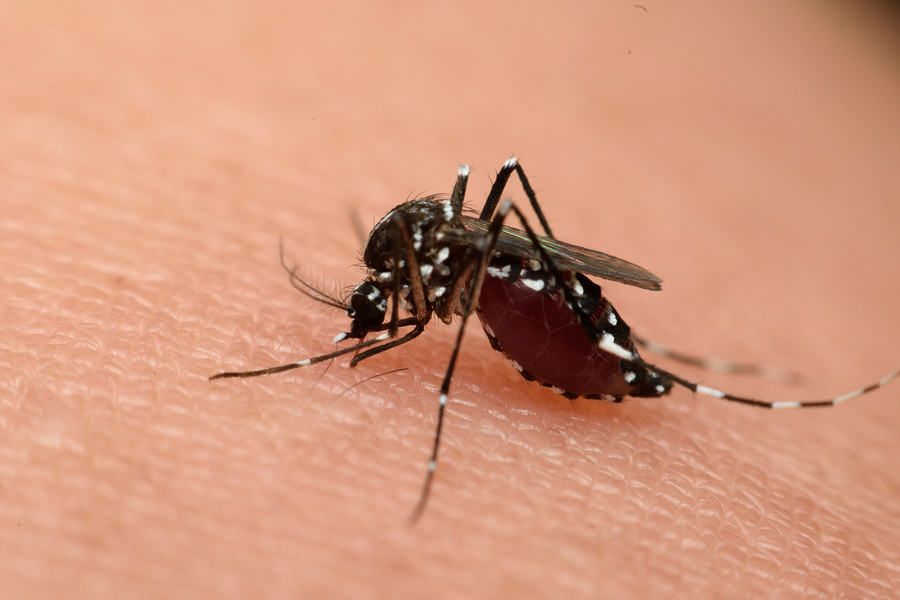- Make It Yourself Lavender Heart-Shaped Bath Bombs!
- 20 Things You Never Knew About “Down There”
- 12 Best Foods For Those Suffering From Arthritis Pain
- 12 Personal Hygiene Mistakes Almost Everyone Makes (Mom Never Told You About #4!)
- 15 Medicinal Plants And Herbs From The Cherokee People
- 12 Mind-Blowing Benefits Of Drinking Coconut Water During Pregnancy
- 12 Outstanding Winter Foods That Won’t Fatten You Up Like A Christmas Turkey
Essential Things You Should Know About Zika Virus

Photo credit: bigstock.com
If you have been paying attention to the news recently, you’ve undoubtedly heard about the Zika virus. This virus is transmitted by mosquitos and the outbreak was centered on South America with some parts of Central America also being affected. Now there is an increased threat to the United States, specifically in the Southern states like Florida and Alabama.
One of the main reasons Zika has caused such alarm in the United States is that is has been known to cause birth defects, specifically a condition called microcephlus.
The outbreak of the mosquito-borne Zika virus throughout parts of the Americas has raised international concern because of the virus’s possible connection to a neurological birth defect called microcephaly. The outbreak is concerning for other reasons as well, including the fact that the virus has spread so rapidly from one continent to another.
So what are the facts about the Zika virus? Here are some essential things you should know about the virus.
The first thing you should know about Zika is that it is carried and transmitted by mosquitoes, but not every species of mosquito harbors the disease. The virus is carried on mosquitoes in the Aedesgenus. The way the virus is transmitted is largely controlled by the amount of mosquitoes in a given area, and the particular species that carries the disease is found through the North and South American continents.
This is also one reason why the Zika virus is cause for so much concern, because the potential impact spreads across much of the Western world where population numbers are high. This also means that the disease has the potential to be transmitted quickly across a large number of people, which is especially troubling if you’re pregnant.
If you’re particularly concerned about the Zika virus, here are some of the facts that you should know. The more you know about the disease, the more you can do to prevent exposure to it. These facts are also important if you think you’ve contracted the virus.
Continue to Page 2

Photo credit: bigstock.com
First, you should know that Zika doesn’t present itself with extreme symptoms. In fact, in most cases, Zika will have no symptoms or little ones that people may mistake for the flu. Since Zika is a disease found in warmer climates, it can be difficult to differentiate between other diseases in those regions.
The symptoms can also be congruous with other illnesses like the flu, but if you’ve been traveling in South or Central America it is important to visit a doctor if you feel even the slightest bit off. The problem with Zika is that it tends to impact the nervous system, so that is of special concern for those who think they have come in contact with the disease.
Zika virus is predominantly contracted through the bite of a mosquito. If you take care to prevent mosquito bites, you’ll be doing a lot to prevent contact with the disease itself. You can also do your part by cleaning around your home or property and eliminating standing water where mosquitoes may breed.
If you’re travelling abroad or visiting a country where Zika is prolific, take precautions. One of the easiest ways to do this is to wear long sleeves or pants and avoid going out at night when the mosquitoes are more active. You can also use bug spray to keep mosquitoes away. Products that contain DEET are some of the most highly recommended when it comes to keeping mosquitoes away and preventing the transmission of Zika virus.
The prevention of Zika is important because, for now, there is no cure or treatment for the virus. If you contract the disease, there is nothing you can do to help alleviate the symptoms beyond taking an over-the-counter pain reliever.
The correlation between Zika and neurological conditions including birth defects is very high. In pregnant women, there has been a very high incidence in cases of microcephaly when the mother was exposed to Zika while pregnant. In fact, rates of birth defects and microcephalus especially have been increasing in the United States since the outbreak of Zika virus was discovered. However, scientists do caution that more studies are needed to draw a conclusion on the link between Zika virus and the disease.
READ ALSO: How to Protect Yourself from Deadly Viruses such as SARS, Ebola, and Swine Flu
So, by now, you have a better understanding of the Zika virus and understand some of the facts surrounding the disease itself. If you happen to live in the southeastern part of the United States or if you travel frequently, you should do everything possible to prevent coming into contact with the disease.
References:





























